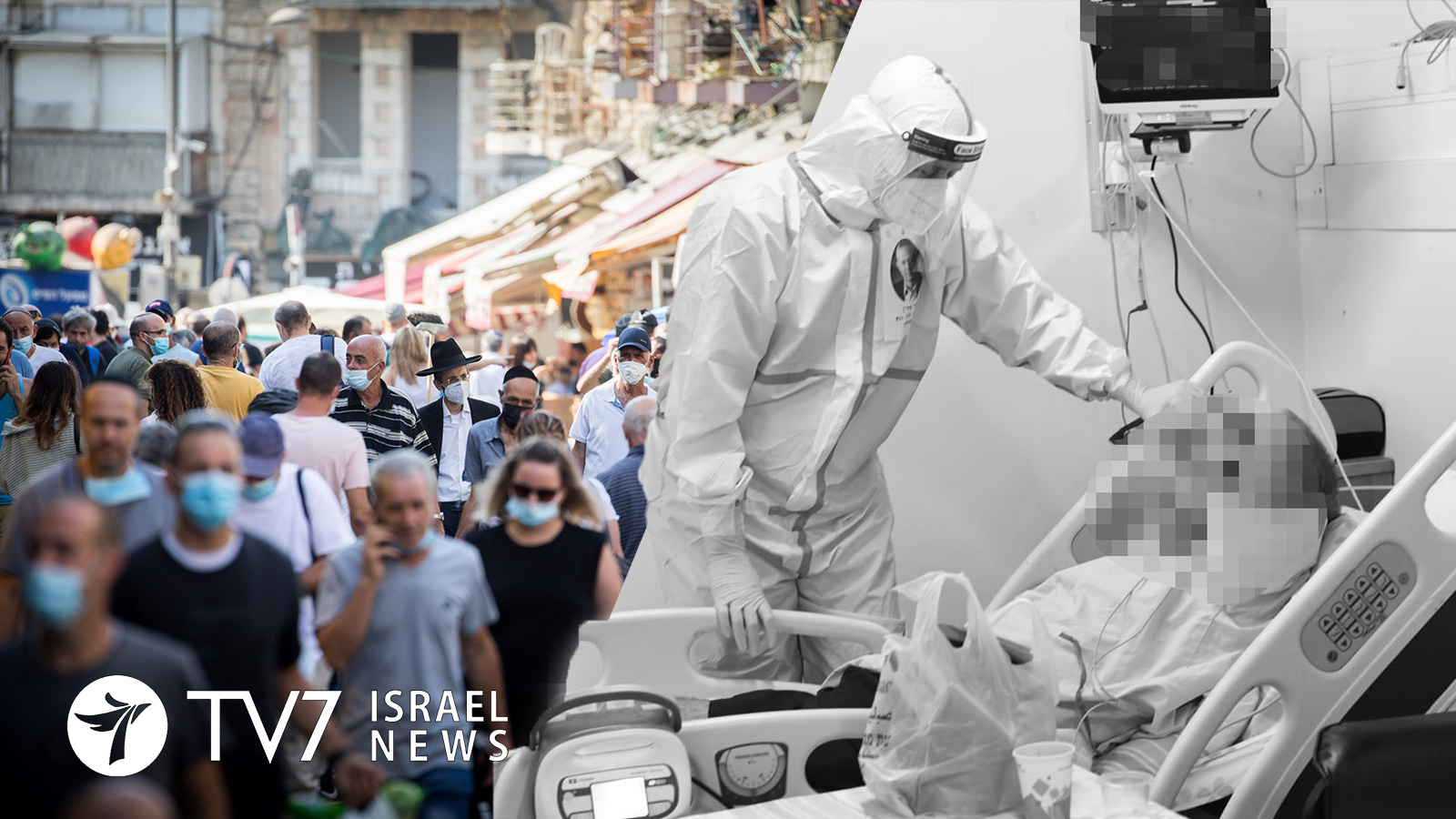Israel’s Coronavirus Cabinet is slated to meet tomorrow to discuss the exit strategy from the nationwide lockdown to curb the epidemic.
At a meeting of top ministers and health officials yesterday, Prime Minister Benjamin Netanyahu insisted that the current closure was mandated.
“It saved us from an astronomical rise in morbidity, mortality, critically ill,” said the Israeli leader, going on to acknowledge that “it is too early to congratulate ourselves.”
Alternate Premier and Defense Minister Benny Gantz, Health Minister Yuli Edelstein, Finance Minister Israel Katz, Science and Technology Minister Izhar Shay and Coronavirus Commissioner Prof. Ronni Gamzu attended the conference.
Netanyahu said that more time is needed to examine the latest research, which indicates an improvement in the country’s infection levels. He said the reopening of the economy will begin in “gradually, carefully and with clear metrics for transition from stage to stage.”
The guideline for advancing the lifting of restrictions is a daily average of 2,000 new cases or less, accompanied by an infection rate of 0.8.
The Health Ministry announced today that 1,609 new virus patients were diagnosed in 24 hours, with the infection rate standing at 7.7%. While the reflects a slight increase from the previous day, the overall number of active cases also dropped by 8,000. The total number of coronavirus fatalities is 1,983. One of the recent deaths was reportedly on Saturday of a Tel Aviv police officer said to have contracted the disease while on duty.
Based on current trends, the lifting of restrictions may begin in most areas of the country this Thursday, 15 October or Sunday, 18 October; and carry through until February. Prof. Gamzu told local media that the first step should be the re-opening of preschools as soon as Sunday based on current morbidity rates, which would allow parents to resume work. The one-kilometer limit on travel from home is also expected to end as early as Thursday, as well as the resumption of activity by private companies that do not interact with the public and limit office staff to 10.
The lockdown will continue without change in “red” areas with soaring COVID-19 levels. These include the largely ultra-Orthodox Jewish towns of Bnei Brak, Modi’in Ilit, Elad, Betar Ilit, Rechasim, Ramle, Netivot, Ashdod, Rehovot, Lod and Hadera, as well as several neighborhoods in Jerusalem, Beit Shemesh and Netanya.
Tomorrow’s discussion by the Coronavirus Cabinet is likely to include an 8-stage plan proposed by theHealth Ministry, even though alterations may be made to it. Each of the stages would last for about 2 weeks, if all goes well.
Here is a brief summary of the Health Ministry plan for the reopening of Israel’s economy, educational and medical facilities.
Phase 1 (this week): Ben Gurion International Airport, restaurant takeout / delivery orders, beaches, and end of restrictions on demonstrations.
Phase 2 (beginning of November, on the decrease of daily cases to 1,000): synagogues, complementary medical services, school for grades 1-4.
Phase 3 (mid-November): outdoor markets, shopping malls, stores, gyms and businesses that interact with the public.
Bottom of Form
Phase 4 (November 29, if daily new infections are 250): all restaurants, cafes.
Phase 5 (December 13): swimming pools, hotels and other overnight accommodations.
Phase 6 (December 27): museums, cultural, leisure and group sport activities.
Phase 7 (January 10): school for grades 5 – 12.
Phase 8 (no set date): bars, clubs and sporting events with live attendance.
Several government ministers are reported to have already objected to the slow pace of the reopening, particularly that students in grades 5 – 12 would not return to school before January 2021.
In related developments, over the Simchat Torah holiday 7,523 people were ticketed by police for violating the lockdown between noon Friday and noon on Saturday. Of those, 5,477 were fined for leaving home for non-essential reasons and 1,486 for not wearing masks. 298 were caught assembling at prohibited locations – including a synagogue in Moshav Ahihud where one confirmed patient was fined ₪5,000 Shequels ($1,477) and 15 others were illegally gathered inside. 95 other people were ticked for leaving quarantine, including a person with active COVID-19 stopped at a checkpoint into Tel Aviv.
Meanwhile, weekly public protest against Prime Minister Netanyahu continues unabated after four months. Tens of thousands of people gathered at nationwide rallies over the weekend to demand Netanyahu’s resignation over his inept handing of the coronavirus and pending trial on bribery, fraud and breach of trust charges. The Premier maintains innocence of any wrongdoing and has slammed the protestors as “anarchists.”
As current lockdown restrictions bar anyone from travel more that a kilometer from their homes, demonstrations broke out at hundreds of locations across Israel. Thousands are estimated to have attended the largest protest at the Habima Square in central Tel Aviv. Four people were arrested during clashes with police in Jerusalem and Tel Aviv.
“In these complex days, I call on the entire public to take responsibility, to respect the law, to avoid violence and violations,” said Acting Police Commissioner Moti Cohen on Saturday night, “so that together we can get through this difficult period and stop the spread of the virus as soon as possible.”
